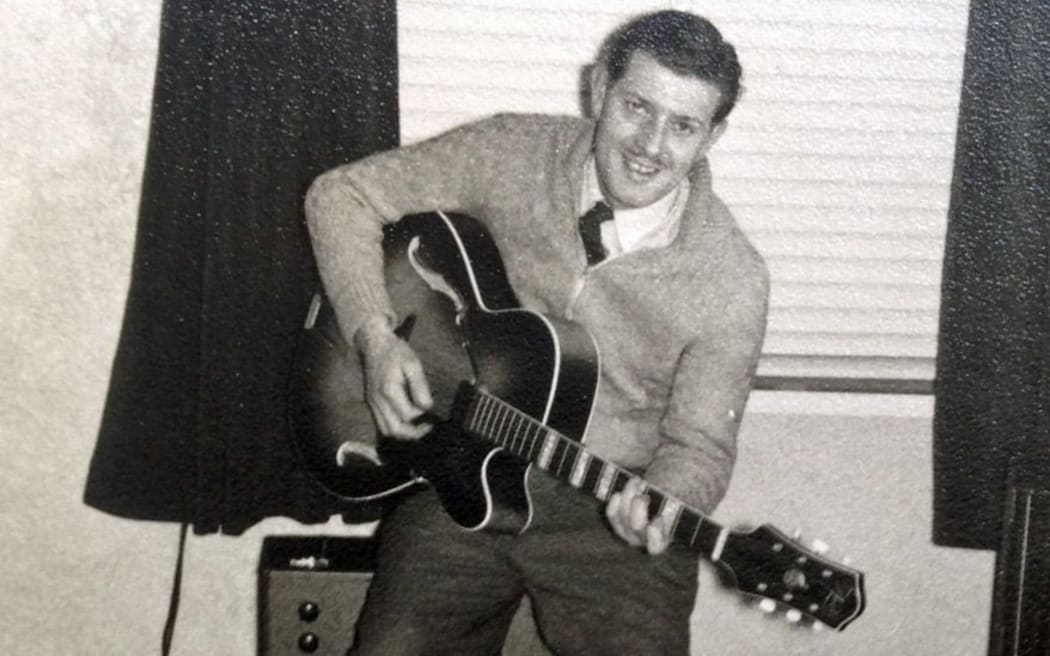From the street, panel beater Ken Patten's home looked much like any other council house.
That little council house in Sheffield, England is the subject of the documentary A Film About Studio Electrophonique - that sets out to capture Ken Patten's legacy.
The studio was active in the 1970s and 1980s when Sheffield had a rich tradition of electronic music, producing bands such as Human League, ABC, Cabaret Voltaire and Pulp.
Patten built the studio himself using his training in the RAF to make DIY recording equipment.

Ken Patten Photo: bbc.co.uk Michelle Umbleby
Film-maker and Sheffield native James Leesely told Sunday Morning he had no idea that the small but influential studio was in the area of the city in which he grew up.
“I used to walk past this house, it's just a semi-detached house and obviously from the outside you can't really tell at all and it's in the back, it's an extension he had built, Ken Patten, to house his studio and all his tape reels and all this equipment.
“So I used to walk past it, unbeknownst to me or any of my friends that this was once the place where some of the most iconic Sheffield bands recorded their earliest music and material.”
Patten worked by day as a panel beater and at night worked in his studio, Leesley says.
“When he got back, he must have been going into studio and creating these really space-age sounds at that time before early delays and early science fiction-type sketches. But he was in the RAF, which was a key point we found out because he had all the sort of microphonic and technological experience through radios and microphones, lot of military gear actually pioneered the studio world, the musical studio world.”
Patten used this knowledge to make the equipment he needed, he says.
“At the time, the early 70s, you couldn't just go on the internet, obviously, and buy something from the other side of the world or share ideas. It was really like a lab for him to work in.”
Patten encouraged young Sheffield bands to come and experiment and record, very cheaply for about 15 pounds a session, Leesley says.

Photo: Screenshot
The Human League recorded there and a young Jarvis Cocker with his band Pulp, he says.
“It was the tape they made with Ken Patten at Studio Electrophonique, they took to some kind of talk that (BBC DJ) John Peel was doing and sort of caught up with him outside and handed him this tape.
“I think Jarvis was only like 16 or 17 and John Peel listened to that back on the way down to London, and then brought Pulp in to do a John Peel session, which were quite a big thing. Obviously, at that time, they could break a lot of bands.”
But it was the lesser known outfits that recorded with Patten that intrigued the most, he says.
“It was really tantalising and we were drawn in by the lesser known outfits, those that were on the same sort of level at that time but for whatever reason didn't quite break into the sort of glamorous stardom that a lot of these others did.”
Patten never got to see the success some of his young proteges went on to have, says Leesley.
“He wasn't really interested in the glamour and the bright lights. He just wanted the real creation and setting these young people off onto the track.”
Members of bands that went on to have success were very keen to participate in the film, he says.
“They were bringing up old photographs, even like their notebooks from that time when they were trying to design logos and things like that, they were really, really generous with their resources that supported the story.
“And we got a lot of people telling us that he was really caring and kind with his time, and he just wanted the best for the youth of that time, especially artistically.
“I think he could see that England at that time in the late ‘70s, early '80s was quite a tough place to be and these young people had all these really brilliant ideas, but they didn't know how to channel it.
“So, I think he felt he was the tutor, he was really, really modest about it all, didn't want any sort of fanfare or anything like that and we felt our duty to sort of put that in a document or make a film to celebrate his life because he would have probably not wanted this kind of attention.”

